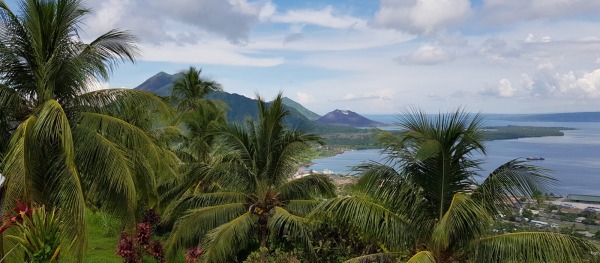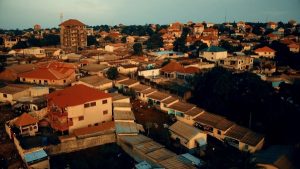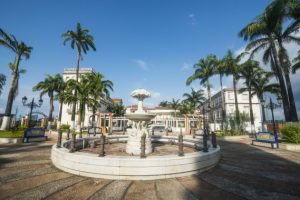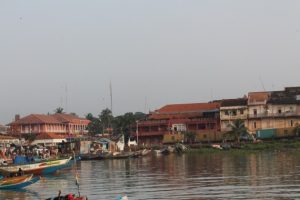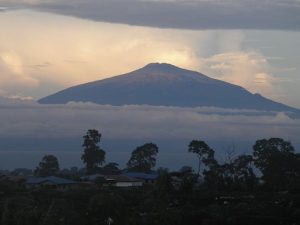Warnings & Dangers in Papua New Guinea

OVERALL RISK : MEDIUM
Papua New Guinea is not safe to travel. Nevertheless, this country attracts many tourists, and if you follow specific security measures, you can quite safely travel in this country. It is essential to prepare for the trip in advance and minimize all risks.

TRANSPORT & TAXIS RISK : MEDIUM
Public transport is not safe due to unsatisfactory conditions and criminal groups that can attack buses, especially with tourists. Taxis and rented cars are the best means of transportation for Papua New Guinea.

PICKPOCKETS RISK : MEDIUM
The theft of bags, personal items, and a pickpocket is common in this country. Therefore, tourists should always look after their personal belongings and not lose their vigilance. Be careful at intersections. Often motorcycle thugs rip bags out of hands.

NATURAL DISASTERS RISK : MEDIUM
Papua New Guinea is prone to natural disasters, including earthquakes, tsunamis, volcanic activity, cyclones, floods, landslides, and droughts. Examine the weather conditions in this country before your visit here.

MUGGING RISK : HIGH
Unfortunately, many criminal gangs are operating in the country. Associated with a high unemployment level, these criminals often resort to the most brutal methods, including armed attacks, robberies, blackmail, and even kidnapping. Be very careful, travel in groups, and avoid walking in sparsely populated areas of the country.

TERRORISM RISK : LOW
No cases of terrorism are known in Papua New Guinea, and the country as a whole is not exposed to this risk. Nevertheless, study the political situation in the country before your visit here and avoid any demonstrations and rallies.

SCAMS RISK : HIGH
Fraud is also one of the common types of crime in Papua New Guinea. Be careful at any time, anywhere. Often, those who offer or ask for your help can be scammers. At every step, one can expect deception, inflated prices for goods and services, as local residents try to squeeze the maximum amount of money out of tourists. Check everything twice and contact only licensed services.

WOMEN TRAVELERS RISK : HIGH
Solo traveling women are not advised to go to Papua New Guinea alone. It can be very unsafe. Plan your trip to be in the company of like-minded people, preferably men, and avoid any walks at night.
How Safe Is Papua New Guinea for Tourists?
Papua New Guinea is not a safe country for tourism.
The crime rate from year to year remains quite high here.
The main problems are related to the theft of things, attacks and robberies, housebreaking, drug trafficking, and corruption.
The country has gained a reputation as an unsafe travel destination due to the activities of criminal gangs (known in Tok Pizin as splits) in major cities, especially Port Moresby and Lae.
Low employment has led to problems such as theft and attacks.
Armed gangs may also be active in some areas of the Highlands Highway.
Travelers are easy prey for these bandits.
They can take everything and even rape women.
Find out your current security situation before taking a tour.
However, most people in Papua New Guinea are amiable, curious, and helpful, and it is easy to distinguish the bad guys from everyone else.
Avoid conflicts at all costs, and keep calm in any situation.
Many people are very temperamental, and local conflicts (which usually have nothing to do with you) can quickly fail.
If you are robbed, keep calm and hand over your money.
Fortunately, few people have weapons, but most people carry bush knives (they need them for everyday tasks, including self-defense).
Most crimes are related to alcohol or marijuana.
Do I Need a Visa to Visit Papua New Guinea?
A foreign national wishing to enter Papua New Guinea must obtain a visa in one of the PNG diplomatic missions unless they are a citizen of one of the countries eligible for visa on arrival or eVisa. All visitors must hold a passport valid for six months.
Which Currency Is Used in Papua New Guinea?
The kina is the currency of Papua New Guinea. It is divided into 100 toea. The name kina is derived from the Kuanua language of the Tolai region, referring to a callable pearl shell used widely for trading in both the Coastal and Highlands areas of the country.
How's the Weather like in Papua New Guinea?
The best time to visit Papua New Guinea is late May or early June through to October as there is less chance of rain. Average temperatures may be slightly more relaxed – think mid to high 20°Cs rather than low 30°Cs. July tends to be the coldest month, followed by August.
What Do I Need to Know about Airports in Papua New Guinea?
Papua New Guinea has many airports. The main and busiest is located in the capital of the country, Port Moresby. Jackson International Airport, also known as Port Moresby Airport, is Papua New Guinea’s most significant and busiest commercial airport, located eight kilometers from Port Moresby’s capital city.
Should I Get Travel Insurance for My Travels?
Just like anywhere else, the travel insurance policy is a must when visiting a foreign country. Make sure you got it before starting your journey, the customs officer may ask for it.
What Are Some Things to Do in Papua New Guinea?
Papua New Guinea, in the southwestern Pacific, encompasses the eastern half of New Guinea and its offshore islands. A country of immense cultural and biological diversity, it’s known for its beaches and coral reefs. Inland are active volcanoes, granite Mt. Wilhelm, dense rainforest, and hiking routes like the Kokoda Trail. There are also traditional tribal villages, many with their own languages.
Is the Water in Papua New Guinea Safe to Drink?
Papua New Guinea has the poorest level of access to clean water in the world, with more than 60 percent of the population living without access to clean water. Tap water isn’t drinkable.
Is Uber Safe in Papua New Guinea?
There is no Uber taxi in Papua New Guinea. However, you can use any other taxi service in this country or travel by car.
